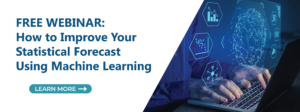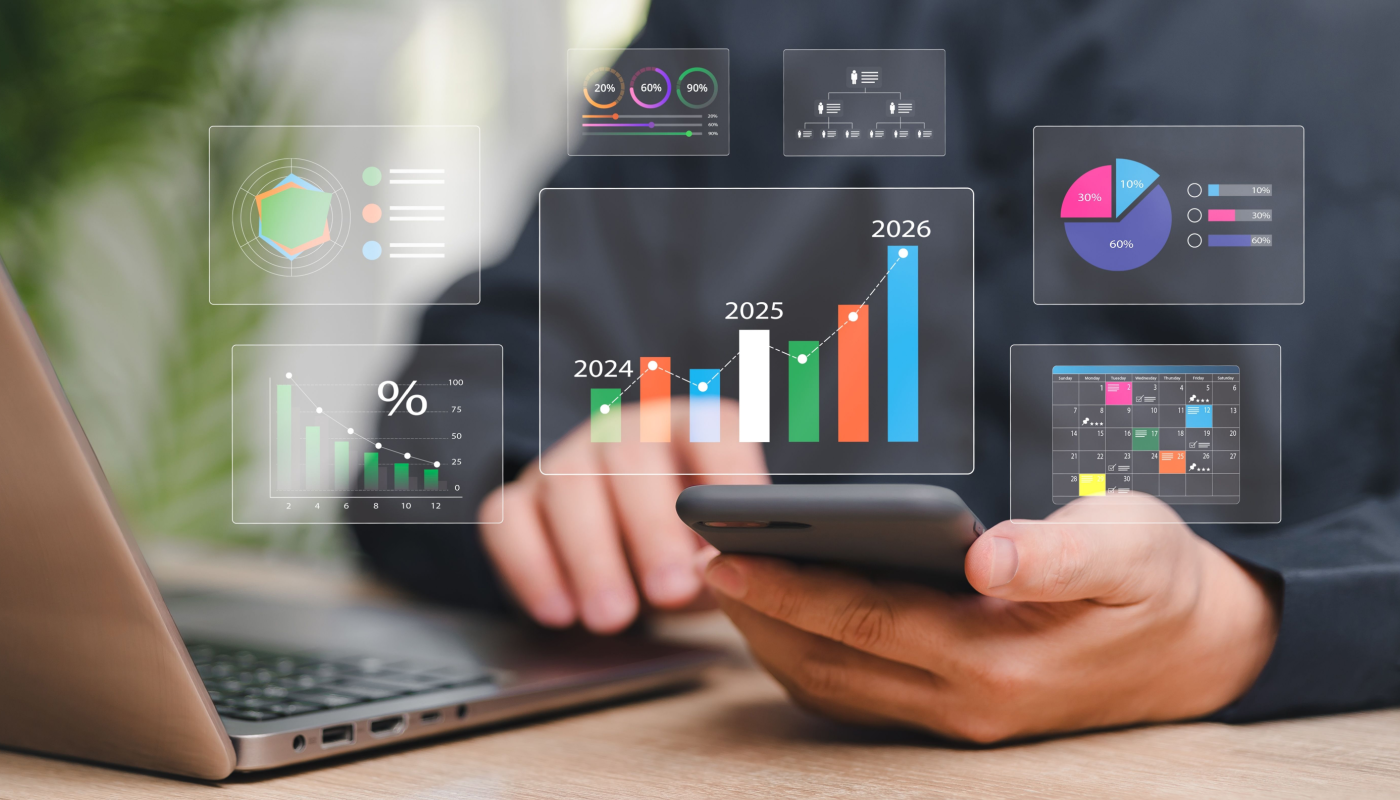These days, machine learning (ML) and artificial intelligence (AI) are everywhere. If one looks at LinkedIn posts or talking heads on TV, the number of times these terms are mentioned is very high and increasing. In the world of business and sales forecasting, this is even more true. But, despite the prolific use of the terms, it is not always clear what people have in mind when they say they will be using ML/AI to improve statistical forecasting.
For example, is the capability to apply techniques to select the best-fit method for a particular time series ML/AI? If yes, then what is the big deal? This has been done for more than 20 years now in all forecasting packages.
How about the ability to fine-tune the parameters of the individual methods? For example, the Holt-Winters method uses three parameters: Alpha, Beta and Gamma. Should these parameters be fed in with some best values or optimized on a case-by-case basis?
Take the case of using external factors next. It is possible that the forecast for a company works best when we use factors such as GDP, housing stats, weather, etc. and determine the causal relationship between these factors and the time series. Then we use these relationships to calculate the forecasting. All this can be done using regression for example. So, is such a causal forecasting setup machine learning?
How about advanced methods such as neural networks? Or state space models? Or probabilistic forecasting? Is that what makes forecasting the new and shiny ML/AI-based? Are there methods unique to sporadic or intermittent time series?
How about lags? Are ML/AI techniques just better in that they can forecast further out in time? Is that what ML/AI all about?
Are these just faster ways of performing calculations? Can one forecast in daily buckets to the older monthly buckets? Does AI/ML provide advanced math that does the number crunching faster while giving more accurate results?
How about the way we measure accuracy itself? Is AI/ML all about new and better ways of calculating forecast accuracy?
How about finding the right level of aggregation at which the forecast should be run? Undoubtedly, the right (and sufficiently low) level of aggregation which gives a business the best forecast outcome is worth a lot to the business. Is that what all the fuss is all about?
The answers to all these questions are probably dependent on who you ask. At Arkieva, we decided early on to focus on the practical aspects and utilize these techniques in a way that creates value for the customer. The future, being the future, remains inherently uncertain. And no technique makes the future more certain. So, the name of the game is to improve the forecast accuracy. And so, we focus on utilizing these techniques in a practical way to create more accurate forecasts for our customers which then results in more value for them.
Register now and join me on Tuesday, June 27, 2023, at 11 a.m. ET for our latest live webinar and learn more as I tackle these topics and more.






